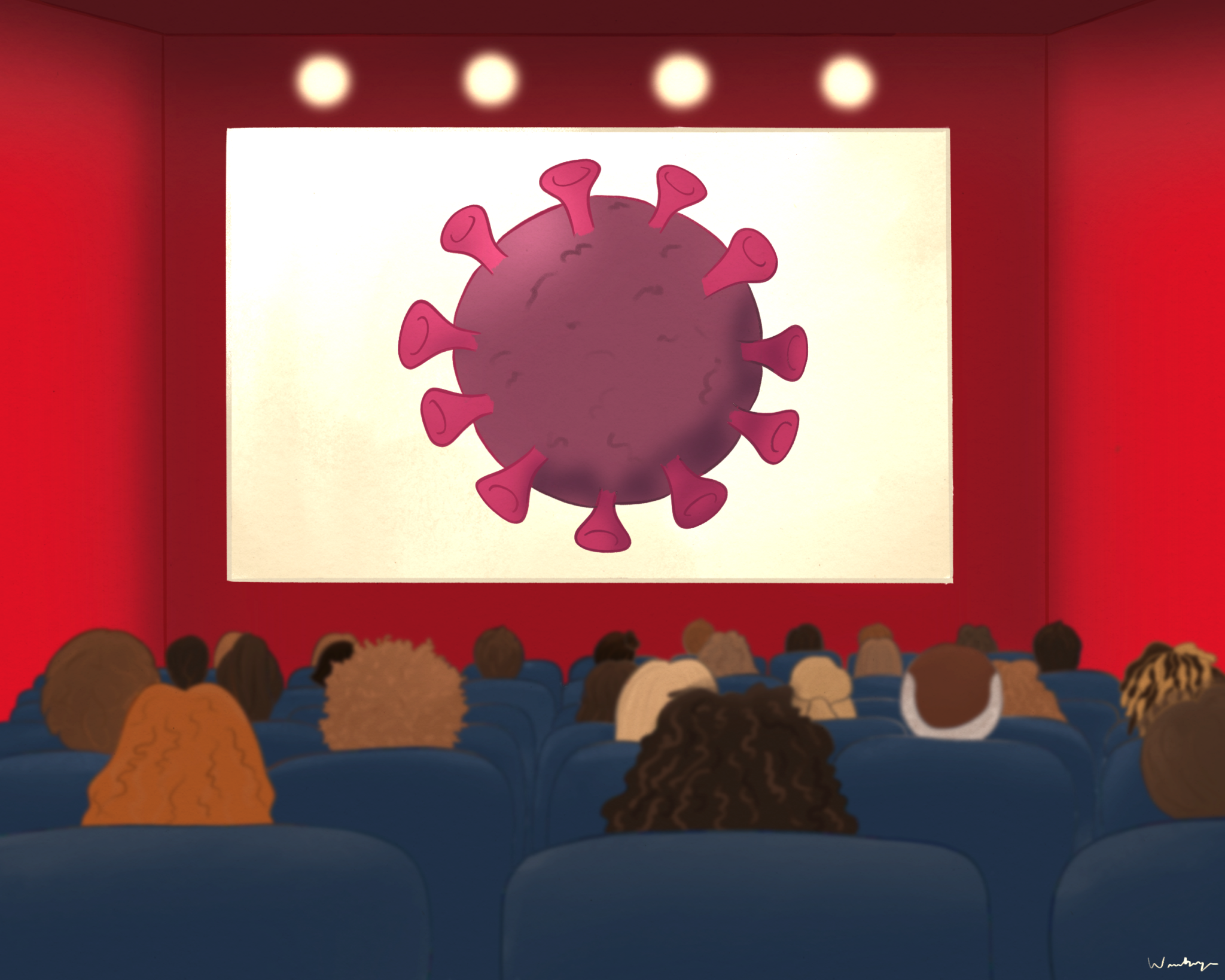
When I tell people I had COVID-19 this Christmas they say they’re “jealous.”
Returning back to campus, there’s a sense of security when you’ve had COVID-19. I’m exempt from testing for three months. I don’t have to worry about getting contract-traced. I can attend larger gatherings without going against my conscience –– colluding with some super-spreader devil instead of the K95-equipped angel sitting on my other shoulder, waving her staff to form a perfect two meter radius.
Life feels… freer after having caught the Omicron variant. I’ve forgotten what it feels like to have your mind waiver to “is it COVID?” every time you cough. I’ve forgotten what it feels like to not assume the worst when you have a mild sore throat or raging headache, more rationally from sleep deprivation. I’ve forgotten what it feels like, well maybe not quite yet, to have that teeny tiny sting inside your chest every time you see a new test result in the MyChart app.
I feel fortunate, I really do, to have caught the Omicron variant over other variants, for a few reasons. The first is that I had very mild symptoms. More importantly, infected loved ones have also been okay. Having been isolated in a log cabin in Orlando, I was fortunately able to test negative after 5 days and made my flight home to London. However, I also feel lucky because Omicron does not have the same stigma around it as Delta.
With the advent of Omicron, the sense of morality around never having had COVID-19 has finally left us.
As a student coming home for breaks, I was ridiculed by my family in Brooklyn. They live extremely COVID-19 cautious lives, and my life compared to theirs seemed like utter insanity. They — lovingly, I hope — used to call me Typhoid Mary, known for spreading typhoid fever through her signature dish: peach ice cream.
Then, my friend at Yale caught Delta a few days after Halloweekend. As she made her way into the isolation housing, her friends’ first reactions were “Oh, you idiot, you seriously got COVID?” They were sympathetic, sure, but they couldn’t even envision themselves in her place even though they’d been at the exact same parties that weekend.
Before Omicron, people would all go out to social gatherings and one or two people might get COVID-19. Immediately, they’d be viewed as somehow less responsible than everyone else. However, it was far more likely that their immune systems were simply in a different place. People had to face jokes and judgment even though across campus, we’ve been engaging in maskless social events, desperately seeking normalcy in a college student’s life. We only have four amazing and expensive years here and don’t want to see the time and opportunities pass by on a computer screen.
It’s hard to expect college students to be satisfied by a life lived online. We hear stories of our parents’ or friends’ college experiences and want those memories for ourselves. College can already be a lonely place and Zoom links read like Dante’s inscription above the gates of hell: “Abandon all hope, ye who enter here.”
And after having dealt with this for over two years, most people aren’t willing to give up normal aspects of everyday life anymore.
And fortunately, I never gave my family COVID-19 the few times I’d come back from college. And even more, fortunately, I’ve now lost my nickname as Typhoid Mary. I think they’ve come to terms with the inevitability and universality of COVID-19. No longer can one feel like they’re invincible against Omicron.
Of course, people shouldn’t go out of their way to get COVID-19. Religiously engaging in COVID parties is no better than religiously avoiding social gatherings.
So maybe, the correct response to someone having had COVID-19 over break isn’t so much “jealous.” Rather, it’s something like “I’m glad you’re okay.”







